A look back at when Brian Clough signed Trevor Francis as Britain’s first £1m player
Trevor Francis, who has died at 69, will go down in history not only as Britain’s first £1m footballer, but as a European Cup winner whose prodigious talent was appreciated across the world and took him to the likes of the United States, Italy and Australia.
Born in Plymouth in 1954, Francis was the oldest of three siblings and, with a father who played semi-professionally, his potential was obvious from an early age. He scored more than 800 goals in the Devon schools system to attract interest from professional clubs.
Aged 15 he signed as an apprentice for Birmingham City and later spoke of how he would take his spikes to the club’s St Andrew’s ground to run sprints and improve his speed.
That dedication paid off, with the teenager making his senior debut in the second division the following year as a substitute against Cardiff City, becoming Birmingham’s youngest player at 16 years and 139 days in September 1970 - a record only beaten by current England and Real Madrid midfielder Jude Bellingham in August 2019.
He went on to score 15 goals in his first 15 games that season, including four against Bolton Wanderers, and another 12 the following campaign as the Blues won promotion.
Manager Freddie Goodwin compared Francis to Jimmy Greaves and Dennis Law, yet as an apprentice the forward continued to clean boots, sweep the stands and live in digs with a 10.30pm curfew until he was 17.
Francis’ impact and Birmingham’s promotion to the top flight saw more than 50,000 fans squeeze into St Andrew’s for one game and he would remain at the club until that record-breaking transfer in 1979, scoring 133 goals in 329 games in all competitions.
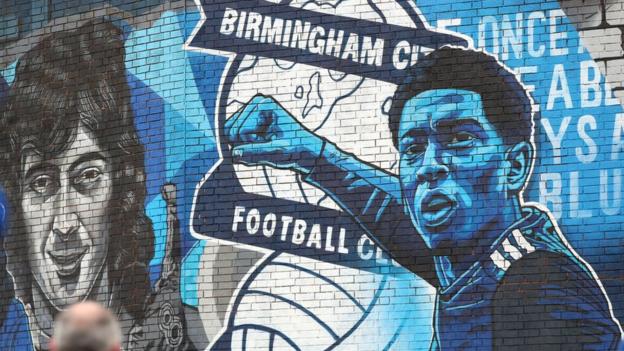 Francis was Birmingham City’s then-youngest debutant in 1970 aged 16 - a record only beaten by current England and Real Madrid midfielder Jude Bellingham in August 2019
Francis was Birmingham City’s then-youngest debutant in 1970 aged 16 - a record only beaten by current England and Real Madrid midfielder Jude Bellingham in August 2019
While at Birmingham, Francis also spent a summer on loan with Detroit Express in the North American Soccer League (NASL) scoring 22 goals in 20 games to earn himself a spot in the All-Stars XI alongside Carlos Alberto, Franz Beckenbauer and the league’s enigmatic top scorer Giorgio Chinaglia, who all featured for champions New York Cosmos.
Having been handed his England debut two years earlier by Don Revie, Birmingham manager Jim Smith eventually accepted Francis’ request to leave the club in pursuit of silverware.
In February 1979, Birmingham accepted a landmark deal for British football from champions Nottingham Forest and, despite Coventry City chairman Jimmy Hill offering to match the bid, Francis joined Brian Clough’s side, believing they were the “only team in England who could challenge Liverpool”.
Clough, who arrived in the press conference to unveil Francis wearing a tracksuit and wielding a squash racquet, insisted the fee was £999,999 so as not to give Francis a million-pound tag, but the deal actually worked out as nearer £1.15m following taxes and commission.
Asked whether it would be a burden, Francis said: “I hope not. At the moment it certainly isn’t, I’m quite excited about it. I realise when I get on that pitch I have to forget about it and just get on with playing.”
It shattered the previous British record of £516,000 set just weeks earlier when David Mills left Middlesbrough for West Brom, but was short of world record moves by Giuseppe Savoldi and Paolo Rossi in Italy.
He made his First Division debut for Forest away at Ipswich, where he came up against England team-mate Terry Butcher, who recalls Francis having a quiet debut.
“I was playing up against him and thought it’s his debut, he’s going to want to excite and do things, I’m in for a hard afternoon,” Butcher told BBC Radio 5 Live.
“So I went up to him and just asked how the family was. Then I said ‘look Trevor, I’m going to lay my cards out on the table. If you do get past me I’m going to kick you so hard that you’ll end up back in the stand. He never came near me for the rest of the game so he had a pretty quiet debut but that was the only way I could beat him because he had everything.”
Eligible to play for Forest in the European Cup final in Munich against Swedish side Malmo, Francis soon delivered on his price tag.
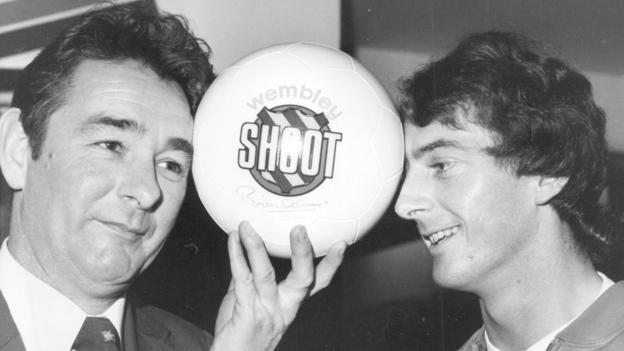 Francis became Britain’s first £1m footballer when he moved from Birmingham City to Brian Clough’s Nottingham Forest
Francis became Britain’s first £1m footballer when he moved from Birmingham City to Brian Clough’s Nottingham Forest
In first-half stoppage time, Francis met John Robertson’s cross at the back post and headed it into the roof of the net, scoring what proved to be the winner. As someone who used to write a column for the comic, Francis called it his very own “Roy of the Rovers moment”.
After another summer loan at Detroit - where Francis netted 14 times - he was part of the Forest side who conquered Barcelona over two legs to win the European Super Cup and beat Wolves to win the League Cup, but after goals against Dynamo Berlin and Ajax in the knockout stages, missed the European Cup final against Hamburg through injury as Forest retained their continental crown.
The same Achilles problem kept Francis out of England’s 1980 European Championships campaign and, after a season disrupted by injury and often being played as a winger by Clough, he left Forest for Manchester City for £1.2m in September 1981 having scored a total of 37 goals in 93 games.
Francis scored 12 times in 26 First Division appearances for City and was also on target twice for England during the 1982 World Cup in Spain, but his spell at Maine Road lasted just one season.
With City facing financial problems they resorted to selling the forward to Sampdoria.
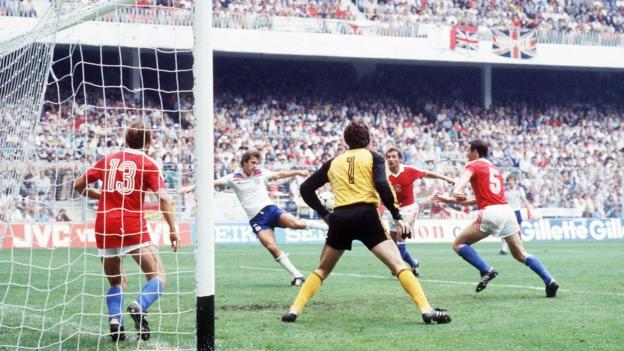 Francis scores for England during the 1982 World Cup
Francis scores for England during the 1982 World Cup
Francis spent four seasons with the Serie A club - winning the Coppa Italia in 1985 in a side that also included Graeme Souness, Gianluca Vialli and Roberto Mancini, finishing as the competition’s top scorer - before another year in Italy with Atalanta.
Francis returned to the UK to join Souness’ Rangers side and won the Scottish League Cup, with spells afterwards at QPR, a very brief stint in Australia with Wollongong City, and Sheffield Wednesday, where he won the League Cup in 1991.
He took over as player-manager at Hillsborough for the 1991-92 season, guiding Wednesday to a third-place finish and runners-up finishes in both the FA and League Cup finals, eventually hanging up his boots after a 23-year playing career aged 39 in 1994.
Francis was sacked in 1995 and the following year became Birmingham boss, missing out on promotion to the top flight via the play-offs three times in succession and reaching a League Cup final, where his side lost to Liverpool on penalties.
He took charge at Crystal Palace in November 2001 but was unable to steer the Eagles into the Premier League and left the club in April 2003. It would prove the end of his managerial career.
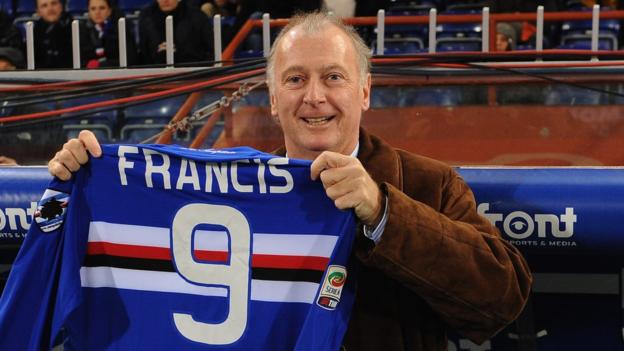 Francis enjoyed a four-year spell at Sampdoria as a player, winning the Coppa Italia
Francis enjoyed a four-year spell at Sampdoria as a player, winning the Coppa Italia
Francis instead embarked on a career as television pundit and co-commentator, with many of those who worked with him expressing their sadness at the passing of a “wonderful gentleman”.
Gary Lineker described Francis as a “wonderful footballer and lovely man”, former Forest defender Viv Anderson referred to him as a “wonderful person and fabulous team-mate”, while Stan Collymore said Francis was one of his heroes and “the loveliest of men, humble, humorous, always giving of his time and advice”.
A key part of Francis’ legacy may be his landmark price tag, but the forward brought a whole lot more to the game and to those who knew him.
“I played professional football for 23 years until I was 39,” he told the Guardian in 2019.
“I won European Cups with Nottingham Forest, I played 52 times over nine years for England, but whenever I go to a sporting occasion I’m always introduced as the first £1m footballer - as if that’s the only thing I achieved in my career.
“But do I feel proud of being the first £1m player? Absolutely.”
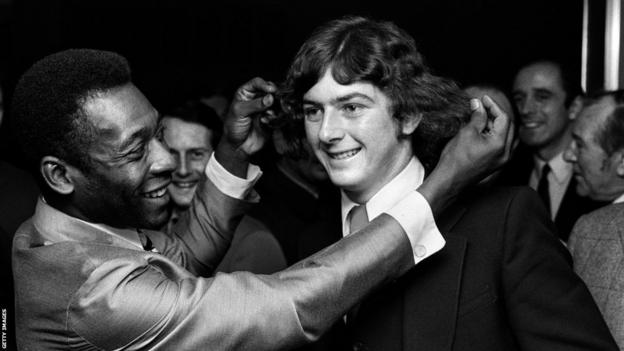 Brazil legend Pele admires the locks of Francis in 1972
Brazil legend Pele admires the locks of Francis in 1972

- Our coverage of your Premier League club is bigger and better than ever before - follow your team and sign up for notifications in the BBC Sport app to make sure you never miss a moment




